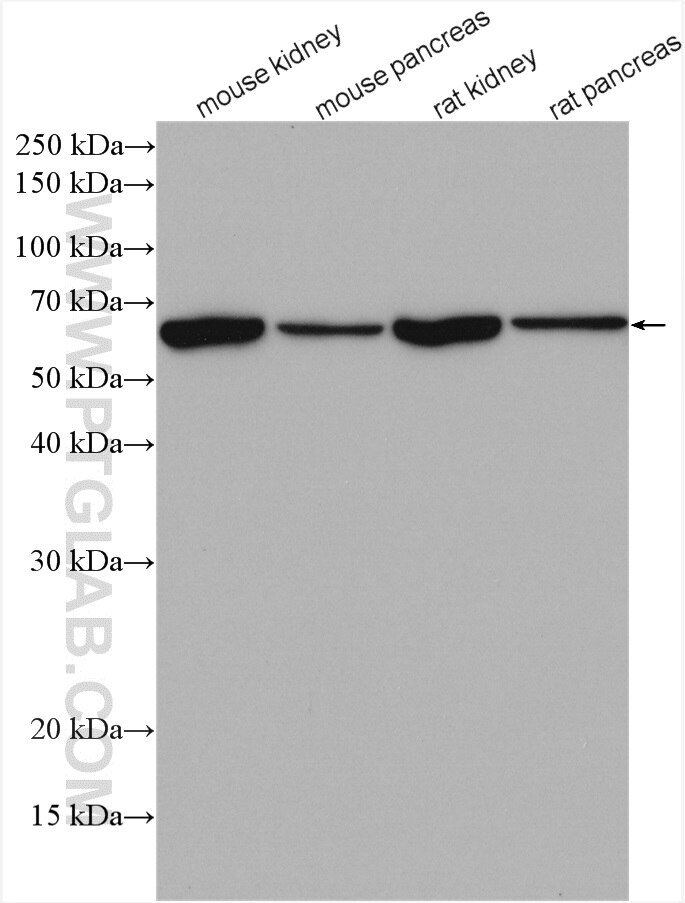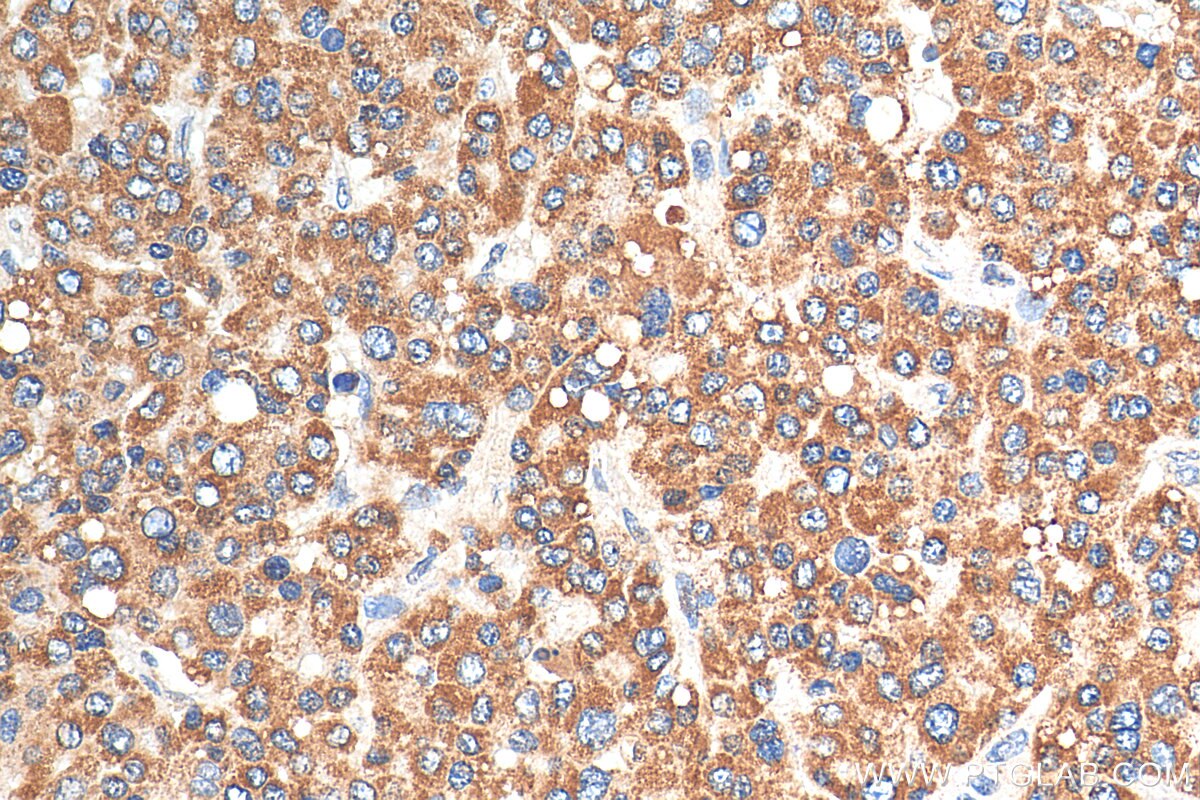Product Information
27991-1-PBS targets KLKB1 in WB, IHC, ELISA applications and shows reactivity with human, mouse, rat samples.
| Tested Reactivity | human, mouse, rat |
| Host / Isotype | Rabbit / IgG |
| Class | Polyclonal |
| Type | Antibody |
| Immunogen | KLKB1 fusion protein Ag27491 Predict reactive species |
| Full Name | kallikrein B, plasma (Fletcher factor) 1 |
| Calculated Molecular Weight | 71 kDa |
| Observed Molecular Weight | 52-70 kDa |
| GenBank Accession Number | NM_000892 |
| Gene Symbol | KLKB1 |
| Gene ID (NCBI) | 3818 |
| RRID | AB_2881032 |
| Conjugate | Unconjugated |
| Form | Liquid |
| Purification Method | Antigen affinity purification |
| UNIPROT ID | P03952 |
| Storage Buffer | PBS only , pH 7.3 |
| Storage Conditions | Store at -80°C. |
Background Information
Human Plasma Kallikrein, a serine protease also named as KLKB1, KLK3, PPK or Kininogenin, is synthesized in the liver and circulates in the plasma by binding to high molecular weight (HMW) kininogen or as a free zymogen. It cleaves HMW kininogen, its major physiological substrate, to release the potent vasodilator peptide bradykinin. It is also able to cleave a number of inactive precursor proteins to generate active products, such as plasminogen and prourokinase. Thus, it plays an important role in blood pressure regulation, fibrinolysis, and neutrophil activation. KLKB1 precursor contains a signal peptide (residues 1 to 19) and a pro form sequence (residues 20 to 638). Upon activation, the pro form is converted to a heavy chain and a light chain, which is linked by disulfide bonds and the latter contains the catalytic domain (PMID: 3521732). KLKB1 is a ~70 kDa protein and can be detected as 80-86 kDa(glycosylation form), 52 kDa(heavy chain), 36-44kDa(light chain) and 18 kDa(often detected in cancer) (PMID: 17963278, 3521732). KLKB1 may be a potential candidate serum biomarker of cancer. The antigen of this antibody just cover the heavy chain of KLKB1, so this antibody cannot recognize the light chain.





